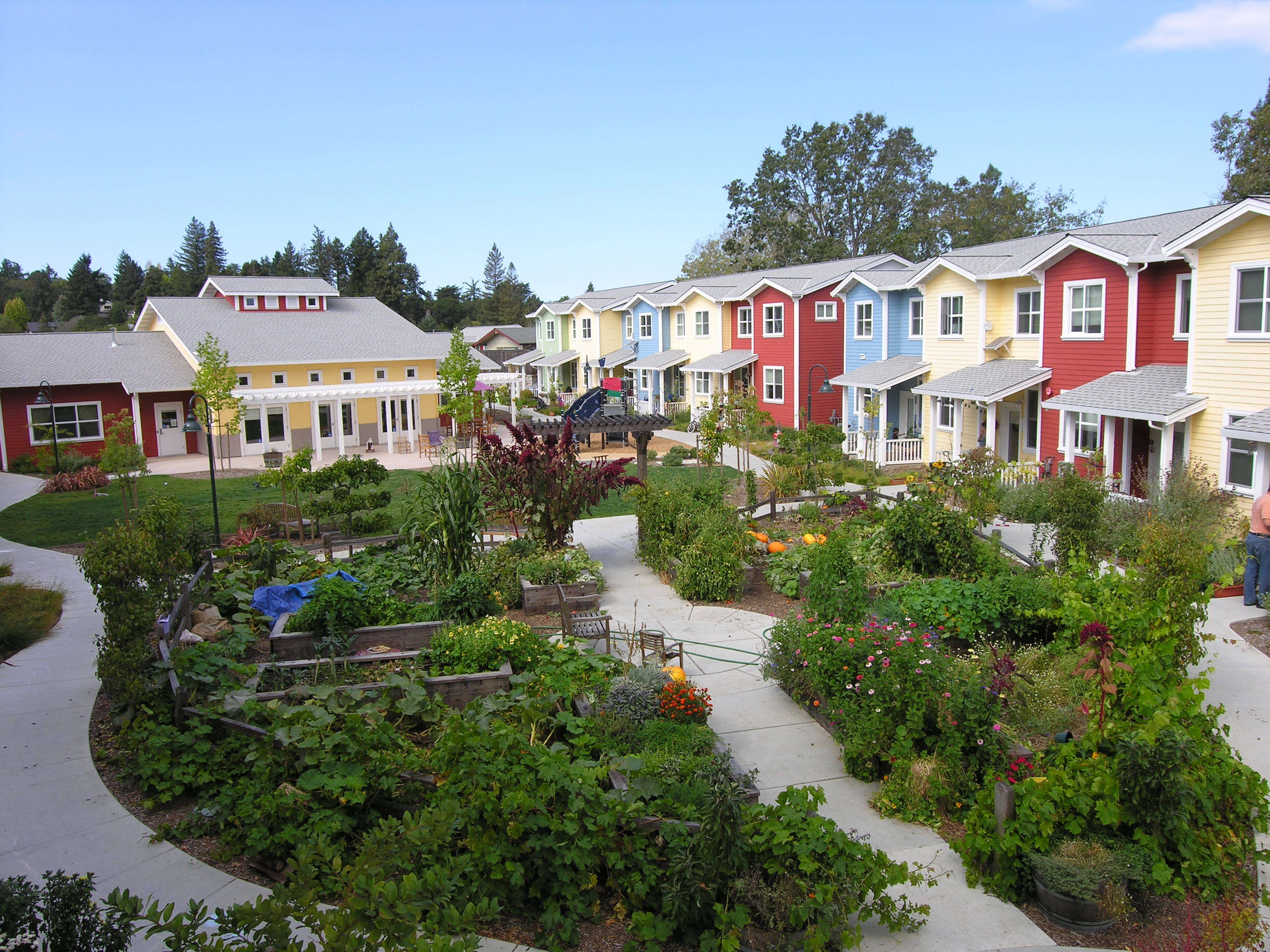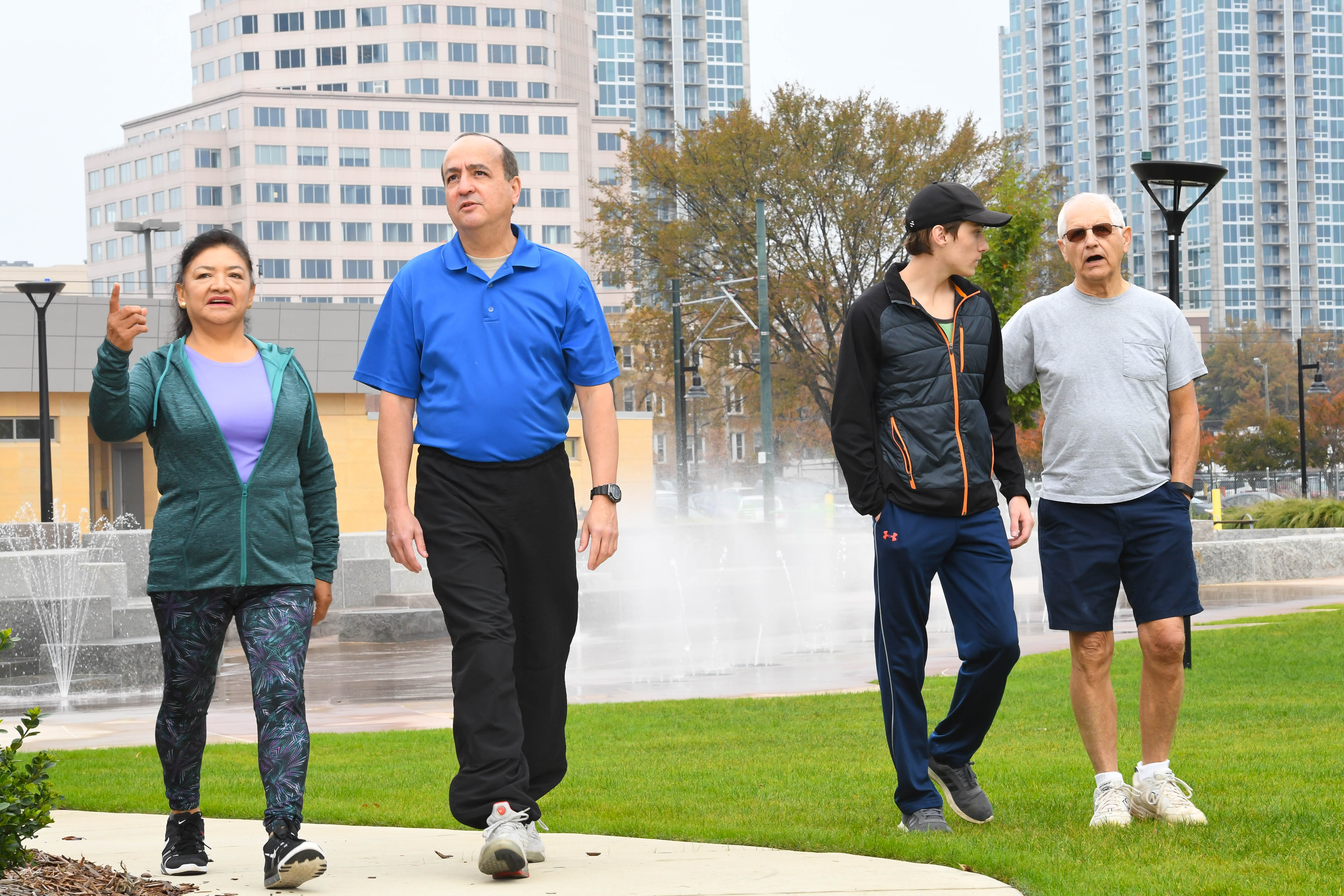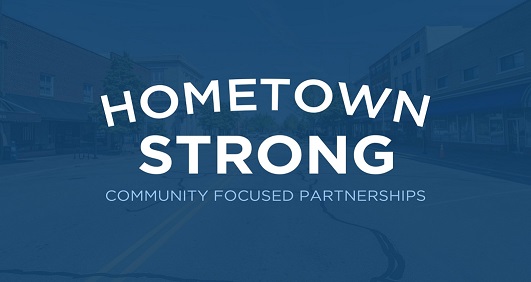AARP Hearing Center
Reaching Across NC: Livable Community Connections is a statewide conference on “Age-Friendly" Communities being held November 19-20 at the Brookstown Inn, 200 Brookstown Ave., in Winston-Salem.
This is your best chance to meet some of the state's leading community planning experts, implementers and advocates while learning more about the latest trends, research, projects and opportunities that enhance the quality of life for residents of all ages.
This conference is free so register today. Special discounted AARP room rates are available at the Brookstown Inn.
Network and learn from leaders who are making important advancements in transportation, health care, the use of open spaces, ending social isolation and more.
The full list of speakers' bios can be found here:
Conference Sessions Include:
Community Challenge Grants
Learn about the great work of Livable Communities Challenge Grant recipients and hear from them in a panel discussion.
Speakers:
Sara Lewis, MSW, Director, Community Engagement & Foundation Relations, United Way of Iredell County
Michelle Hepler, Parks and Recreation Director, Iredell County
Tom Warshauer, Assistant Director, Community Engagement, City of Charlotte, Housing & Neighborhood Services Department
Blake Strayhorn, President/Executive Director, Habitat for Humanity Durham
Achieving Livable Communities through Complete Streets:
Complete Streets are designed to be safe and comfortable for all users, including pedestrians, bicyclists, transit riders, motorists, and individuals of all ages and capabilities.

NC Department of Transportation (NCDOT) recently adopted an enhanced Complete Streets Policy and implementation process, after a year of thorough review and stakeholder input.
Learn how NCDOT can help cities and towns better understand how to achieve Complete Streets in their communities.
Speakers:
Moderator: Aldea Douglas Coleman, NCDOT Senior Policy Advisor
Roger Henderson, Director of Planning, Ramey Kemp & Associates
Dan Gelinne, Program Manager for the Pedestrian and Bicycle Information Center (PBIC), UNC Highway Safety Research Center
Age-Friendly Forsyth (Parts 1 and 2)
Age-Friendly Forsyth has successfully engaged over 50 organizations, and 1,500 organization and community members through a research collaborative phase, and is currently working with key stakeholders to connect, inform, and engage aging adults and community partners to create a livable community through collaborative planning and action.
Topics covered in this session will include developing a research structure and framework, data collection processes, facilitating community events, and key ideologies of collective impact work.
Speakers:
Lee Covington, President and CEO, Senior Services, Inc.
Theresa Hoffman-Makar, MPH, CHES, CHC, Project Manager, Forsyth Futures
Helen Mack, Gerontologist, Volunteer, AARP
"Aging Gracefully" In-Place - A National Demonstration Project
Community Housing Solutions, a local nonprofit organization in Greensboro, was one of four national project sites selected for a two-year study working with older adults called “Aging Gracefully”. Developed by John Hopkins University School of Nursing the CAPABLE program is a client-centered home-based intervention model to increase mobility, functionality and capacity to “age in place."
A collaborative project in Guilford County involved Cone Health occupational therapists, Triad Healthcare Network registered nurses, and a home repair expert to provide home modifications and health education to the client. Come learn more about how the project impacted the lives of older adults and the results of the program.
Speakers:
Gene Brown, Executive Director, Greensboro Community Housing Solutions
Jay Smith, OT/L, MHA, Executive Director - Rehabilitation Services, Cone Health
Bringing the Community Together to Become an "Age-Friendly" County
Orange County, NC has a five-year Master Aging Plan (MAP) to guide policy and programs on behalf of older residents. These plans have brought together representatives from local government, university, healthcare, and community-service organizations, in consultation with area residents, to determine the greatest community needs and ways to address them.
Participants will learn how to develop a community aging plan including data collection, workgroup development, evaluatio and how to use the World Health Organization/AARP Age Friendly domains as a framework for community planning.
Speakers:
Janice Tyler, Executive Director, Orange County Department on Aging
Cherie Rosemond, PhD, Director of the UNC Partnerships in Aging, University of North Carolina at Chapel Hill

Collaborating with Nurses to Create a Culture of Health
With over 3.6 million nurses in the US there is an opportunity to engage members of the profession in health promotion through Livable Communities activities and leadership. This session focuses on the collaboration between AARP (both nationally and locally) and the NC Future of Nursing Coalition in seven designated communities committed to age-friendly initiatives.
Speakers:
Catherine Sevier, DrPH, RN, Chair Future of Nursing, President AARPNC
Donna Lake, PhD, RN, Co-Chair NC Future of Nursing, Clinical Associate Professor, East Carolina University

Creating and Sustaining Walk-Friendly Communities
Walking is the most fundamental form of transportation, yet many communities struggle to create safe, welcoming places to get around on foot. The Walk Friendly Communities program recognizes cities and towns that are putting pedestrians first when they plan and design their streets. Session participants will receive a self-evaluation which will be used to assess their current practices and identify areas where they can improve.
Speaker:
Dan Gelinne, Research Associate ,University of North Carolina Highway Safety Research Center
Engaging Livability in a Diverse Neighborhood; National Night Out, Streetscapes, and Academia
College Hill is a diverse historic neighborhood sandwiched between Greensboro College and UNC Greensboro. Following many years of public and private reinvestment in historic home renovations and a recent influx of student housing, the College Hill Neighborhood Association (CHNA) has embarked on an ambitious initiative to reclaim streets and sidewalks as safe and add neighborhood amenities that support its historic character and livability.
Hear about the strong partnerships between the City and University, catalyzed through National Night Out, and how the neighborhood is piloting efforts to slow traffic, add street art and furnishings, and create new relationships between residents, businesses, and the educational community.
Speakers:
David Sevier, College Hill Neighborhood Association, Greensboro, NC
Dan Curry, Consultant, Dan Curry Consulting, Greensboro, NC
Nikki Baker, Director of Federal & External Affairs, University of North Carolina at Greensboro

How Does Co-Housing Support Livable Communities?
Co-housing presents a unique living arrangement that is designed to promote social participation and a sense of community. Offering a mix of privacy and community, residents have their own homes, while sharing outside and inside spaces where they can gather.
Learn more about the benefits and challenges of this growing trend and the latest research that explores how co-housing impacts aging.
Speakers:
Anne Glass, PhD, Professor and Gerontology Program Coordinator, University of North Carolina at Wilmington
Suzanne LaFollette-Black, Associate State Director, AARPNC Coastal Region
Intergenerational Engagement Opportunities in Public Spaces
Public play spaces encourage activity that promote positive physical and cognitive health and address everything from childhood obesity to the benefits of exercise on brain elasticity, symptoms of Parkinson’s, decrease in social isolation, opportunities for creative play and intergenerational activities.

Session attendees will receive an overview of an award winning inter-generational play project that was done in partnership with Mecklenburg County Parks and Recreation, UNC Charlotte and Kompan. This two-track session examines, Engaging People and Engaging Partners and touches on the use of outdoor spaces, social participation as well as respect and social inclusion.
Speaker:
Tracy McGinnis, Director of Philanthropy, Southminster
Meaningful and Effective Community Engagement
This session will present the community-led strategy developed by Active Knox with the support of AARP and the Knox County Tennessee Health Department to promote active living, physical activity and alternative transportation choices.
Active Knox is an independent and autonomous collaborative of organizations that work under the premise that healthy design equals healthy communities.
Speakers:
Liliana Burbano Bonilla, Public Health Planner, Knox County Health Department
Donald Lindsey, Volunteer, AARP
Needs Assessment of the Aging Population in Charlotte
Unprecedented demographic changes including the rapid growth of the older adult population has required local-governments and community-based organizations to better understand community health status and the array of programs needed to serve a diverse population of older adults.
This presentation examines socio-demographic characteristics, health status and service use patterns of Whites, African Americans and Latinos 60 and older in Charlotte and Mecklenburg County.
Speakers:
Julian Montoro-Rodriguez, PhD, Director, Gerontology Program, University of North Carolina at Charlotte
Jennifer Ramsey, PhD, Faculty, Gerontology Program, University of North Carolina at Charlotte
Open Space, Trails and Active Living Panel: Financial and Technical Resources Available for Your Community
Learn from representatives from major technical and financial sources at the state level how to access information and funding for enhancing communities to make them healthier for all ages.
Speakers:
Will Summer, Deputy Director, Clean Water Management Trust Fund
Charlynne Smith, PhD, Director of Recreation Resources Service, NC State University
Nathaniel Halubka, Manager of Grants and Outreach, North Carolina State Parks
Planning for Health & Walkability in Small Communities
The South Carolina Department of Health and Environmental Controls led an innovative effort to increase healthy food access and active living in small SC communities. The project is developed model implementation plans for 16 communities in the state.
The session, led by a representative from the state health department, a city administrator, and an active living consultant, will describe the planning process, and what federal, state, and local partners were involved. It will also provide case studies and lessons learned from local project development, funding, and implementation.
Speakers:
John Cock, Vice President, Planning/SE Region, Alta Planning + Design
Lori Phillips, MPH, MCHES, Director, Division of Nutrition, Physical Activity, & Obesity Prevention Bureau of Community Nutrition Services | SC Department of Health & Environmental Control
Shawn Putnam, City Planner, City of Camden, SC
Rural Livable Communities Panel Discussion
Livability efforts in rural areas, small towns and remote communities differ from those in urban areas and are often place specific. About 80% of North Carolina is considered ‘rural’.
The discussion will be moderated by Mary Penny Kelly, Governor’s Hometown Strong Initiative. Lean more about efforts to leverage state and local resources, identifying ongoing projects and community needs, and implementing focused plans to boost the economy, improve infrastructure and strengthen North Carolina’s hometowns.Hometown Strong is an initiative that offers a more personal and hands-on approach for state government’s reaction to the needs of North Carolina’s rural communities. Hometown Strong creates a partnership between state agencies and local leaders to champion rural communities. The effort leverages state and local resources, identifies ongoing projects and community needs, and implements focused plans to boost the economy, improve infrastructure and strengthen North Carolina’s hometowns.
Speakers:
T. Lee Covington, President & CEO, Senior Services, Inc.
Fred Fontana AARP Volunteer

Anne Glass, PhD, Professor and Gerontology Program Coordinator, University of North Carolina Wilmington
Mary Penny Kelley, Special Advisor for Governor Roy Cooper, Hometown Strong Initiative
































































